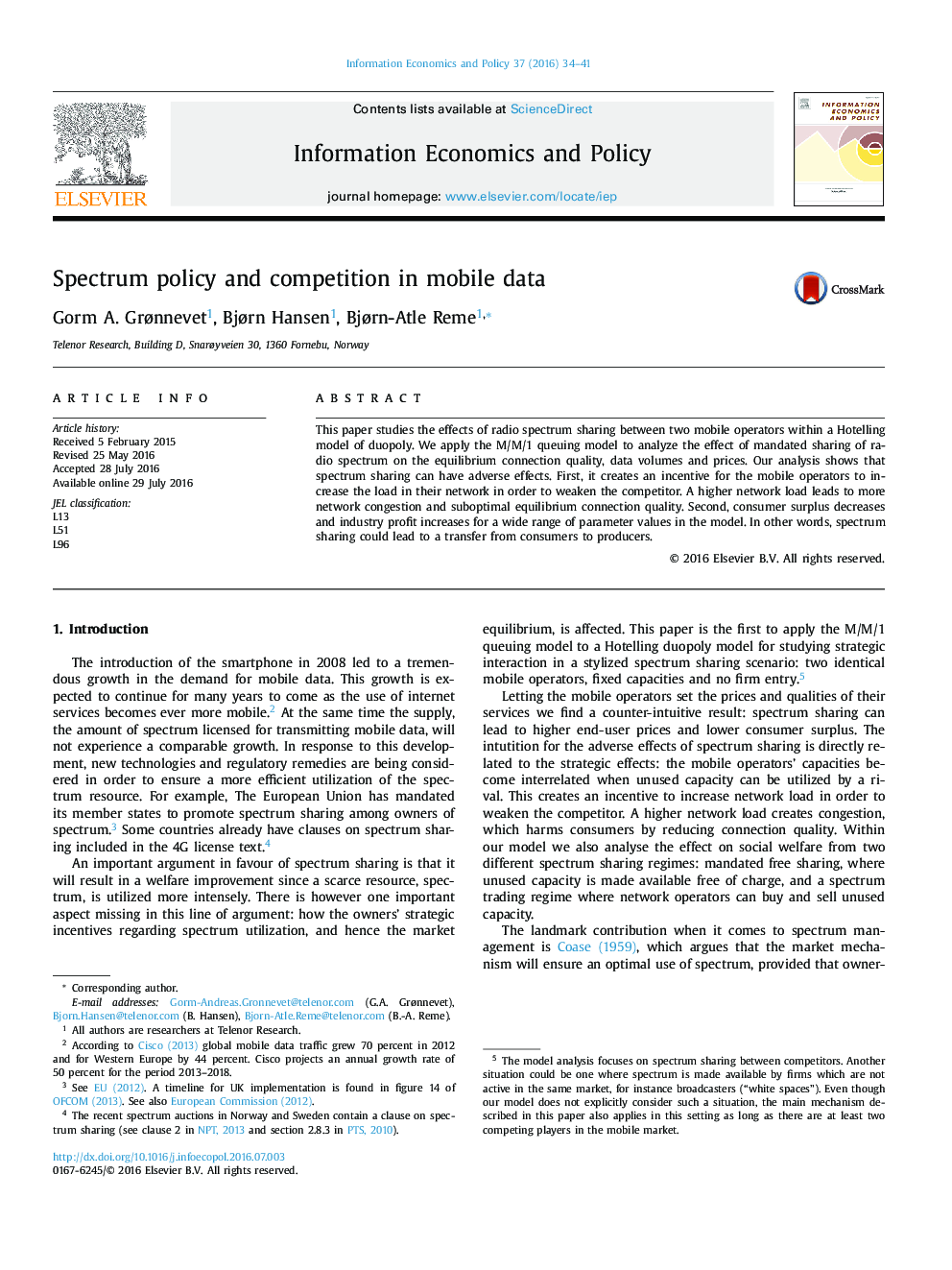| Article ID | Journal | Published Year | Pages | File Type |
|---|---|---|---|---|
| 5075668 | Information Economics and Policy | 2016 | 8 Pages |
â¢We model mandated sharing of radio spectrum between mobile operators in a duopoly model.â¢We find that mandated spectrum sharing may have adverse effects: higher prices and lower quality.â¢Two regimes for spectrum sharing are compared: mandated free sharing and spectrum trading.â¢Spectrum trading harms consumers, benefits producers and increases total welfare.
This paper studies the effects of radio spectrum sharing between two mobile operators within a Hotelling model of duopoly. We apply the M/M/1 queuing model to analyze the effect of mandated sharing of radio spectrum on the equilibrium connection quality, data volumes and prices. Our analysis shows that spectrum sharing can have adverse effects. First, it creates an incentive for the mobile operators to increase the load in their network in order to weaken the competitor. A higher network load leads to more network congestion and suboptimal equilibrium connection quality. Second, consumer surplus decreases and industry profit increases for a wide range of parameter values in the model. In other words, spectrum sharing could lead to a transfer from consumers to producers.
